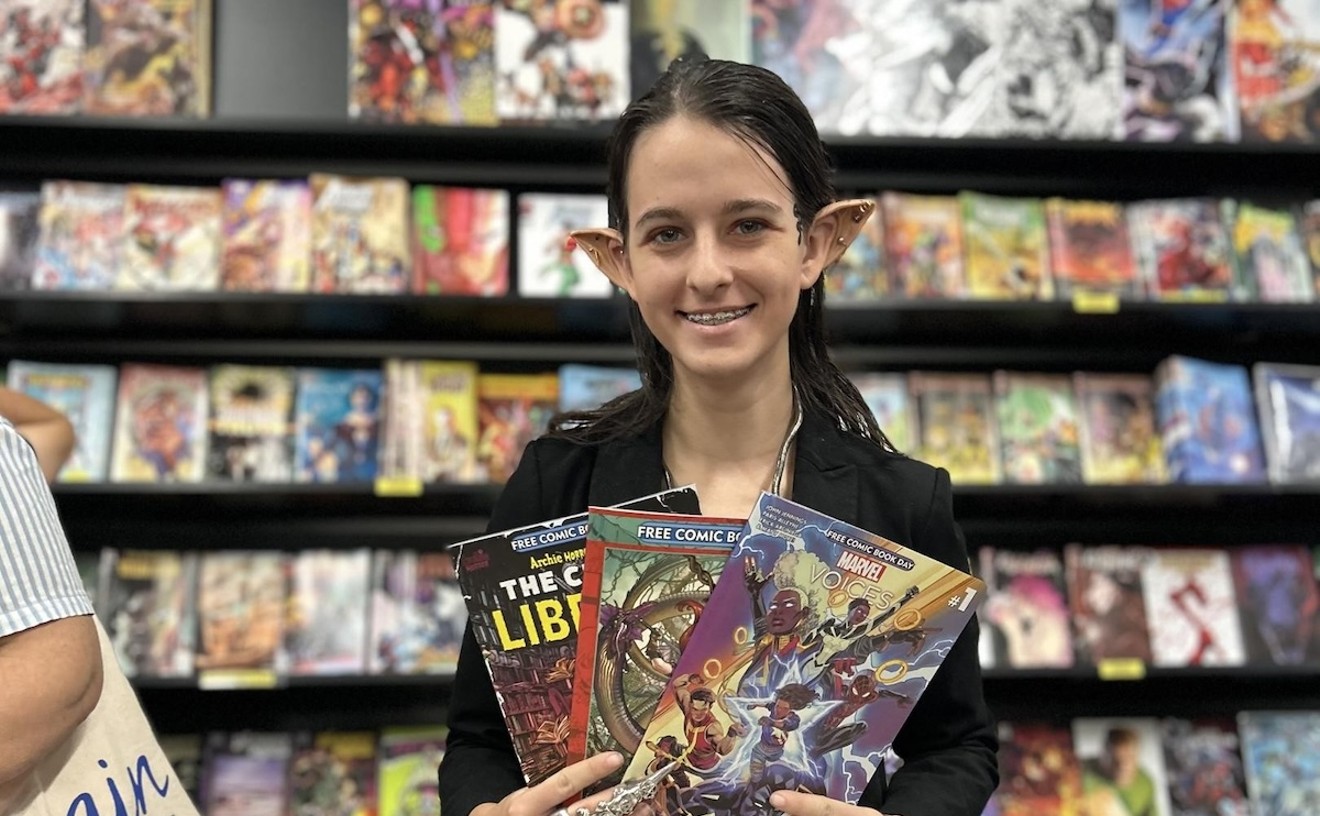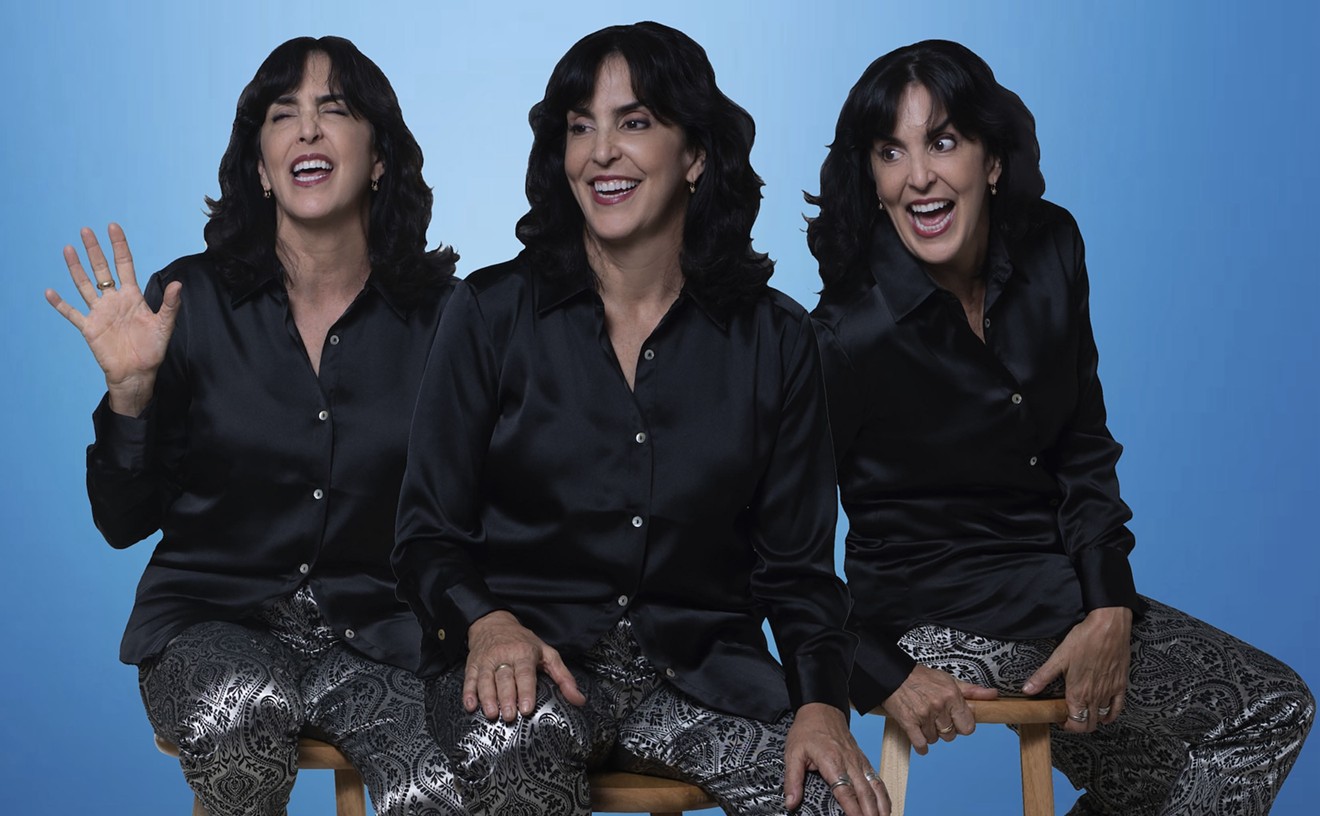"Comics are words and pictures," opined the late Harvey Pekar, comic book writer, critic and cult-personality. "You can make anything with words and pictures."
For over three decades -- as the writer (and main character) of navel-gazing indie comic book American Splendor -- Pekar's life was dedicated to the infinite potential that lies within a panel's framing.
Thanks, in no small part to the mobs of illustrators and writers, including Robert Crumb and Alan Moore -- American Splendor inspired a commercially and critically successful film adaptation of the same name that rocketed Pekar, and his wife (slash greatest confidant and collaborator), Joyce Brabner, into pop consciousness. Ms. Brabner, a distinguished and prolific artist and activist herself, will be appearing at the upcoming Miami Book Fair as part of the "Remembering Harvey Pekar" panel. She recently spoke with Cultist.
Pekar passed in July of 2010, but his legacy of curmudgeons, wry
observation and simple relection-and-truth has maintained a greater
momentum than the artist could have ever envisioned. Next year marks the
release of Pekar's full-length feature graphic novel called Cleveland, which fuses the narrative of Pekar's hometown with his own personal story. There's also a Kickstarter campaign to erect a monument in his honor.
New Times: Does the "Remembering Harvey Pekar" panel have planned talking points, or will it be purely Q&A-based?
Joyce Brabner: I don't present and I answer questions. I'll sit at the table and just talk to people. It's not like I've got dance moves to show off. I do promise it'll be interesting or lively, unless you're in the wrong room.
I was always sort of the thermometer. [Harvey and I would] do this together, and I would take the temp of the room and set the tone. Because I did this so much, there is a lot of thinking and talking about "what Harvey would have said."
Do you ever get tired of having those kinds of conversations over and over?
When we went on tour with the movie, I made it my mission to give different answers to the same questions. Not make things up, but you know, that's fun too. I have been asked some very odd questions. One of my favorites is "Did you think when you met that man and married him that you would some day look up and see yourself on the silver screen in a major motion picture?"
Did Harvey have a knack for embellishment?
Everyone has a knack for embellishment. It's called Thanksgiving dinner with your family. Harvey used reverse embellishment. He would take things that I witnessed and he would put them down in the baldest, starkest way. [He believed that] if you start talking about what a great person you are, everyone is going to hate you. If you show faults and flaws, they feel sorry. Misery loves company. A number of things he did that were terribly heroic, kind, or generous, he would put the worst possible face on them.
Harvey was a stickler for accuracy. He wrote things down when he heard them. I have boxes of those. What he did as well was conceal [the speaker's] identity by changing their color or gender or some other fact. He didn't want to jeopardize anyones job. So afraid of unemployment. Jeopardize the job of Bush? Absolutely. But not some stupid sales clerk.
Cleveland's epic scope paired with Harvey's narrative and perspective makes the work feel like a final statement or attempt at an opus. Was Harvey working toward his masterpiece?
He wasn't working on a final statement. He simply sat down and wrote. Did he have a sense of beginning middle and end? Absolutely, because he knew how to construct a story. Harvey never imagined anyone would read anything. Epic, opus, scope: never thought about any of it. It was just perseverance. He finished a few days before he died. Did he know he was dying. Yes and no.
Yes, because he thought constantly about dying, and because he knew having two rounds of cancer left him vulnerable we kept him focused every single day. The day he died, he was working with me on this book we were writing together, passing strips back and forth. He died very quickly on the spot. He died working and with lots on the table.
How did Joseph Remnant come to be the illustrator for Cleveland?
Joseph had illustrated a couple things with Harvey, and he saw a lot of Crumb in him, though this is a slightly softer story. Harvey's love of the city really comes through.
Kind of a funny story: Another artist tried to bodyblock Joseph from talking to Harvey, [Talking about] how she and only she should be the illustrator. It was embarrassing and this person had no idea how bad Harvey thought her work was. He lavished his praise on people who were beginners or struggling or trying. If you were established, that's when the criticism came.
Criticism makes you grow. He was my harshest critic. He believed in my writing, and was upset that I had to put things on hold to take care of him. But I didn't mind. All work is important as long as it's something I care about.
The illustrator didn't have to be someone who lives in the City of Cleveland. Joseph understood the way Cleveland looked from inside Harvey's eyes. The other person never had to clue. Harvey was scrupulous about who he worked with. He needed the right artist for the right story.
How did he pick his illustrators? From keeping up with comics?
He never read comics unless they were given to him. People don't understand this: we're still in the phone book. He'd take a look at stuff. He'd write detailed letters back to kids. He was really a tremendous a champion of young talent.
How did you overcome your hesitation to immortalize Harvey in statue?
Well, it's not what we were about at all. Comics have this horrible, chest-pounding inner-anxiety that they're not really art or literature. It goes back to the '50s, The Ten Cent Plague kind of thing. But every time somebody dies they are a "master" of comics.
I was thinking, "Goddamn, I don't even have the money to bury him properly, or to put a stone on him. I thought this was ludicrous. This guy from the New York Times asked me about it, and I made a wisecrack about how the city couldn't even build a Superman statue.
In Jewish tradition, you celebrate the works, not the man. I met another widow whose husband was a popular university professor. She said, "They're doing the same thing to me, they want to name the street he was killed on after him." I knew I had to step in.
If we make it about the medium...we have statues of Greek gods holding books, or the gods of transpiration holding a stage coach and a steam engine and a truck on a bridge. That's a little anachronistic, so why not something about graphic novels? I wanted the comic book page to be the dominant motif.
What would his reaction to the Kickstarter Project be?
He would have gone, "Auuuuggh! I don't want you to waste your time on this! You should be writing! Your time and life is valuable! I've held you back too much with my illness." And then later, before bed, I would say "This is for the library, Harvey." And he would smile and say, "I do like those library ladies."
Follow Cultist on Facebook and Twitter @CultistMiami.










